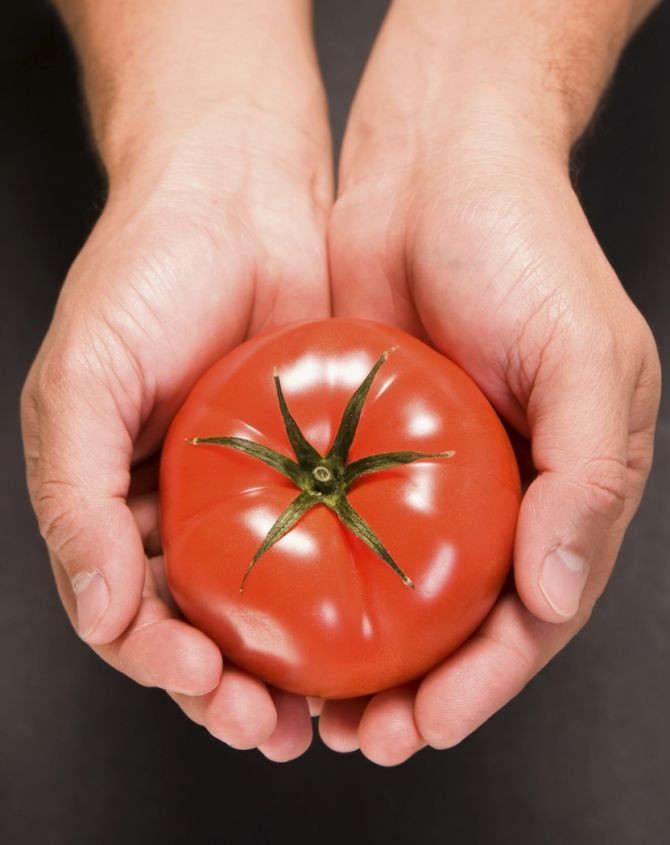Gene Mutation Affects Taste of Tomatoes

For all you tomato lovers, researchers have finally cracked the code for bad tasting tomatoes.
A team of researchers from Boyce Thompson Institute (BTI) for Planet Research at Cornell University, the U.S. Department of Agriculture (USDA), and the University of California, Davis uncovered the gene alteration that is found in most grocery store tomatoes that reduces the amount of sugar, carbohydrates and carotenoids in the fruit.
James Giovannoni, one of the senior authors and plant molecular biologist at BTI and the USDA Agriculture Research Service, states the trait isn’t an important trait, it is just a gene that most tomatoes have, but it does lower the level of sweetness and nutrients.
During the study scientists identified the location of the “uniform-ripening” gene. Using this location, the researchers discovered the gene coding for the protein that controls the photosynthesis levels in tomatoes. While leaves are the primary location for photosynthesis in plants, it was observed by authors that tomatoes can contribute up to 20 percent of their own photosynthesis, producing higher levels of sugar and nutrients, once fully ripe.
Naturally ripened tomatoes can have uneven patches of darker green and different shades of red. Through the 1920s commercial breeders found a natural mutation in tomatoes that causes them to ripen uniformly from one full shade of green to one full shade of red. Researchers explained this alteration is apparent in most tomatoes that are sold in grocery stores.
Researchers suggest those who care more about the taste of their tomatoes, rather than the appearance should ensure their plants are mutation free.
Ann Powell, a research biochemist who led the UC Davis team’s efforts on the research, stated it is a rare chance to translate scientific findings to the real world. It also provides an approach to recapture quality characteristics that was once unknown.
Published by Medicaldaily.com



























